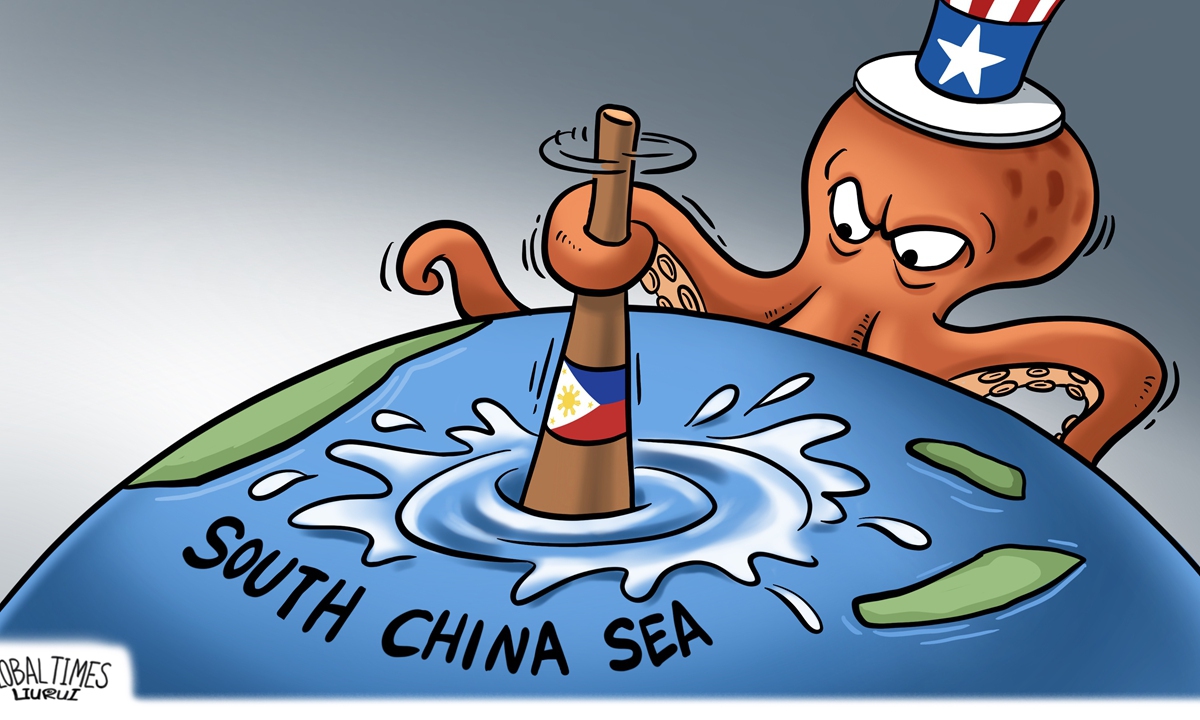test2_medical bed supplier
作者:休闲 来源:综合 浏览: 【大中小】 发布时间:2024-04-05 21:26:42 评论数:

US in South China Sea Illustration:Liu Rui/GT
Themedical bed supplier recent $1 billion investment pledge from the US to the Philippines, announced during US Commerce Secretary Gina Raimondo's visit, is seen by Chinese analysts as a strategic move to encourage the Philippines to further cooperate with the US' Indo-Pacific strategy and take a strong stance against China, particularly over the South China Sea issue. However, analysts caution that this investment package may be more like a sugar-coated bullet, as the potential losses would outweigh the gains if the Marcos Jr government continues to provoke China.
From March 11 to 12, US Secretary of Commerce Raimondo led a delegation of senior executives from 22 US businesses and non-profit organizations, including United Airlines, Google and KKR, to the Philippines. The US Department of Commerce said in a release on Tuesday that the delegation is "on a first-of-its-kind Presidential Trade and Investment Mission" to the Philippines.
While in the Philippines, Raimondo "reaffirmed the importance the US places on a strong bilateral trade and investment relationship" between the two countries. Delegates participating in the Mission have announced over $1 billion of recently-completed or anticipated US investment, spanning areas of solar energy, digitization and electric vehicles, according to a release from the US Department of Commerce.
The US investment package to the Philippines serves a strategic political purpose of strengthening US-Philippines relations and supporting the Marcos Jr government in its tough stance against China on South China Sea issue, Ge Hongliang, deputy director of the College of ASEAN Studies at Guangxi University for Nationalities, told the Global Times on Wednesday.
Bilateral relations between China and the Philippines have strained recently due to the Philippines' continuous provocations on the South China Sea issue. On Monday, the Chinese Foreign Ministry told the Philippines not to undermine China's territorial sovereignty and maritime rights and interests and that it should not invite external forces to intervene in regional affairs, after Manila's envoy to Washington recently claimed that the Philippines is seeking to count on the US to explore energy resources in the South China Sea.
From an economic perspective, the Philippines is looking to diversify its economy in the face of global industrial chain risks and major power competition. While the Marcos Jr government is working to decrease dependence on China, the US has offered economic cooperation, especially on semi-conductors and the digital economy to cater to its needs, Ge said.
However, while the US has made similar commitments to other Southeast Asian countries as part of its so-called Indo-Pacific strategy, the actual implementation of these promises has often fallen short. Moreover, whether US investment in the Philippines will be successful ultimately depends on the needs of US companies and whether the Philippines can meet their demands, said the expert.
For example, in the field of semi-conductors, the Philippines lags behind some Southeast Asian counties on the groundwork.
Some politicians in the Philippines have claimed that the investment from the US is intended to help the country counter China's "economic coercion." However, Chinese analysts believe that this so-called gift package from the US is more like a sugar-coated bullet, with the ulterior motive of dragging the Philippines into tensions with China and using the country as a spearhead to provoke China on South China Sea issue.
In contrast, cooperation with China, particularly that under the Belt and Road Initiative, has brought tangible benefits to countries in Southeast Asia, including the Philippines. Ge emphasized that the potential losses could outweigh the gains if the Marcos Jr. government continues to put the Philippines at risk of conflict in the South China Sea and further damage relations with China.
